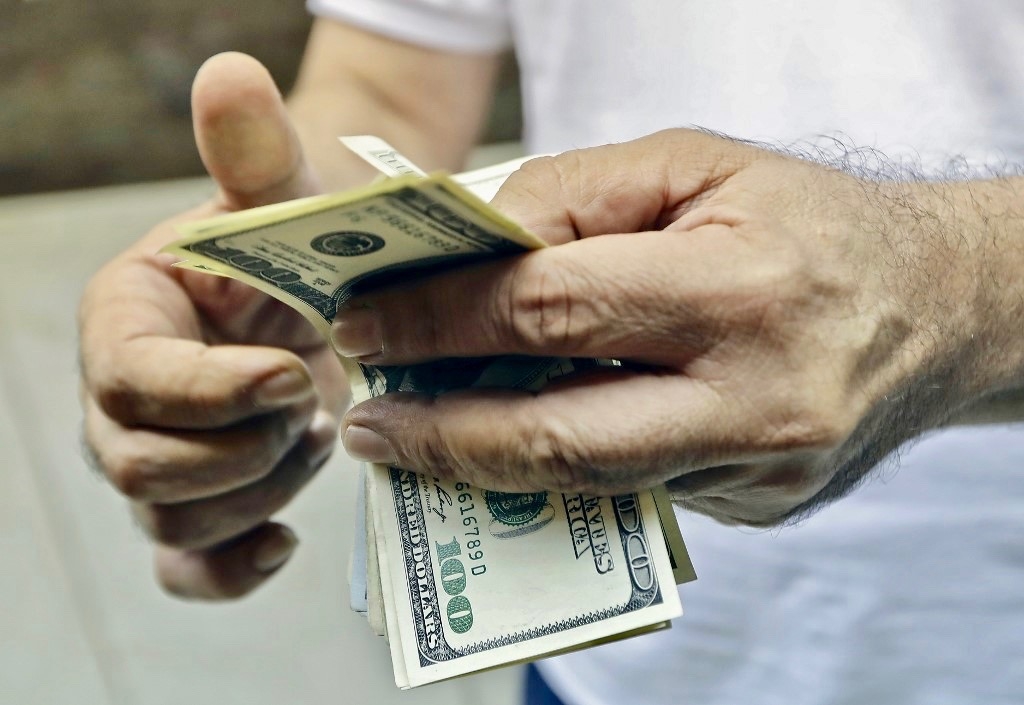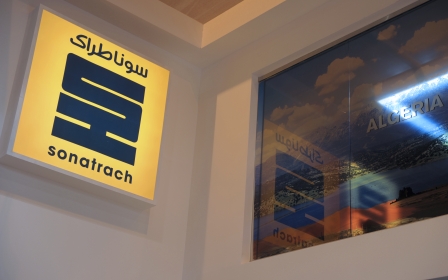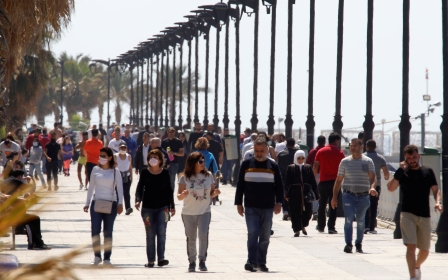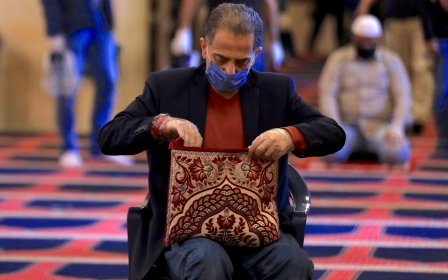Lebanon army says 16 arrested in 'illegal' currency ring

Sixteen people in Lebanon, mostly Syrians, have been arrested for money transfers and "illegal" currency exchange operations, the army said on Saturday, amid a government crackdown on exchange rate manipulation.
The army said in a statement that it had arrested 13 Syrians and three Lebanese who were carrying out "money transfers and illegal currency exchange transactions, using licensed companies and offices as a front," AFP reported.
The suspects used an "unlicensed online platform belonging to one of the financial companies" to carry out the financial transactions, the statement said.
The Lebanese pound has been pegged to the US dollar at 1,507 since 1997, but the country's worst economic crisis in decades has seen its value plunge to less than 4,000 on the black market.
The government has sought to stem the fall by launching a nationwide crackdown on money changers it alleges are exchanging the pound for dollars at a rate weaker than the 3,200 per dollar permitted by the central bank.
During the arrests, the army seized "significant sums" and also computers and laptops used in the operations, the statement added, specifying that the arrests took place in 12 regions across Lebanon.
The network sent dollars with motorists across the border to Syria, specifically to the northwestern province of Idlib, a security official said, referring to a region controlled by rebels.
After land borders closed because of the coronavirus pandemic, the network started using an "illegal online platform" controlled by a Lebanese money changer, the official added.
Security forces this week arrested that suspect and found "hundreds of thousands of dollars" stashed in his Beirut home, he said.
Investigations later led to a Syrian residing in Lebanon who was also arrested for involvement in the ring, along with several of his Lebanese and Syrian affiliates, according to the official.
Lebanon has long been a conduit for foreign currency entering war-torn Syria, a country heavily sanctioned by the US and Europe.
The value of the Syrian currency has also fallen markedly.
Lebanon is in the thick of its worst economic crisis since its 1975-1990 civil war, compounded by the coronavirus epidemic.
A liquidity crunch has seen banks in Lebanon halt dollar transfers and withdrawals.
Dozens of money-exchange offices have been raided by security forces in recent weeks after their personnel allegedly purchased dollars at black market rates.
Central bank
The head of the money changers' union, Mahmoud Mrad, and the central bank's director of monetary operations, Mazen Hamdan, are among the many people recently arrested for alleged exchange rate manipulation.
Hamdan was arrested on Thursday and is being held pending an investigation, security sources told Reuters. The prosecutor's office was not immediately available for comment on the arrest order, details of which have not been released.
Lebanon's central bank denied on Friday that it had played any role in exchange rate market manipulation and disclosed its foreign currency transactions to officials.
The central bank said in its statement on Friday that it would continue to inject dollars into the economy to maintain the exchange rate of 3,200 pounds for imports, with the aim of reducing food prices that have soared.
Middle East Eye delivers independent and unrivalled coverage and analysis of the Middle East, North Africa and beyond. To learn more about republishing this content and the associated fees, please fill out this form. More about MEE can be found here.





